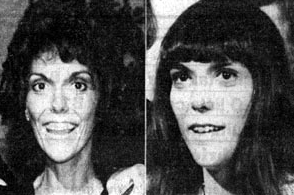Since 2010: Now 54.8M+ Page Views, Edited by Tom Benson, News Tips, Feedback: pd1204@gmail.com.
Monday, March 2, 2015
March 2 In Radio History
In 1897...Marconi was granted the first wireless patent.
Marconi travelled to London in early 1896 at the age of 21, accompanied by his mother, to seek support for his work; Marconi spoke fluent English in addition to Italian. Marconi arrived at Dover and at Customs the Customs officer opened his case to find various contraptions and apparatus. The customs officer immediately contacted the Admiralty in London. While there, Marconi gained the interest and support of William Preece, the Chief Electrical Engineer of the British Post Office.
The apparatus that Marconi possessed at that time was similar to that of one in 1882 by A. E. Dolbear, of Tufts College, which used a spark coil generator and a carbon granular rectifier for reception. A plaque on the outside of BT Centre commemorates Marconi's first public transmission of wireless signals from that site. A series of demonstrations for the British government followed—by March 1897, Marconi had transmitted Morse code signals over a distance of about 6 kilometres (3.7 mi) across Salisbury Plain. On 13 May 1897, Marconi sent the world's first ever wireless communication over open sea.
In 1942...Hall of Fame rock 'n' roll singer, guitarist, and songwriter Lou Reed was born. He died Oct. 27, 2013 at 71.
In 1950...Singer Karen Carpenter, one half of the duo The Carpenters with her brother Richard, was born.
She died Feb. 4, 1983 at 32 from heart failure caused by chronic anorexia. Karen's death brought media attention to anorexia nervosa and also to bulimia and it encouraged celebrities to go public about their eating disorders, among them actress Tracey Gold and later, Diana, Princess of Wales. Medical centers and hospitals began receiving increased contacts from people with these disorders. The general public had little knowledge of anorexia and bulimia prior to her death, making the conditions difficult to identify and treat.
In 1974....Super WCFL 1000 AM Chicago Survey From March 2, 1974
In 1984...FLASHBACK...From R&R March 2, 1984
In 1999...Singer Dusty Springfield died. She was 59
In 2004...At the age of 95 and following advice from his doctors, Alistair Cooke retired from BBC 4 after 58 years of hosting, "Letter From America," the longest-running speech radio show in the world. He died four weeks later.
In 2014…Pittsburgh radio legend (WKFB, WLSW, WWSW, WNRZ, KQV, WAMO, WHOD)/Rock and Roll Hall of Famer Craig "Porky" Chedwick died at the age of 96.
He began his career at WHOD in Homestead (which took the call letters, WAMO — an acronym for the Allegheny, Monongehela and Ohio rivers — in 1956), when the low-power AM signed on, August 1, 1948. When he responded to an ad in a local paper, advertising for on-air talent at the new radio station, his popularity as a play-by-play announcer won him a 10-minute Saturday sports and music show. The music portion was gradually expanded, in response to the public's reaction. WHOD, known as "The Station of Nations," was created to serve the diverse European and eastern bloc immigrant population that worked the Pittsburgh area mills. Most of his young listeners, who turned an ear toward Chedwick's music and off-the-cuff rhymes and patter (he may have been the first white rapper), had no idea that he was Caucasian. Years later, when the fact became apparent, the outcry from some parents, religious and civic leaders made him a local anti-hero. and he was banned from appearing in some neighborhoods. The suggestion that he was trying to corrupt the (white) youth of America was put to rest when he was commended by Senator Estes Kefauver for his work organizing youth baseball teams to combat juvenile delinquency. He even had a few youths remanded to his custody from juvenile court.
In spite of WHOD's low wattage, Chedwick became Pittsburgh's "Pied Piper of Platter". By the early 1950s, black music record labels were hearing about the noise Chedwick was making in Pittsburgh with old R&B stock, so they began inundating him with new material. He introduced the new material to his "movers and groovers," never accepting payola though payola was the norm at the time. Still, oldies would dominate his playlist. Shortly after being honored by WAMO for his years of service in 1984, he was let go by the station. He would work at various other stations in the Pittsburgh market until executives from Sheridan Broadcasting (WAMO's parent company) asked him to come back in 1992
Subscribe to:
Post Comments (Atom)







No comments:
Post a Comment
Note: Only a member of this blog may post a comment.